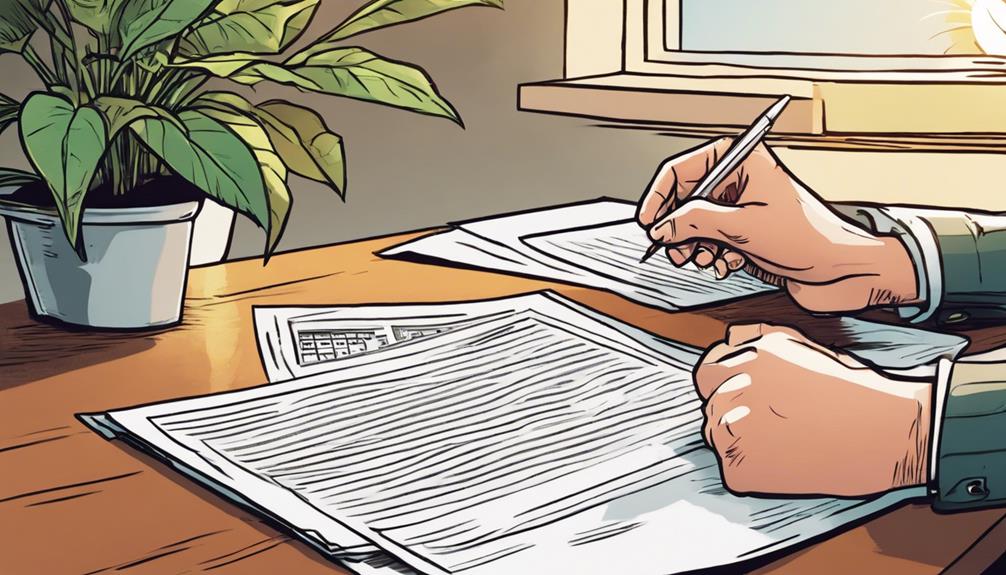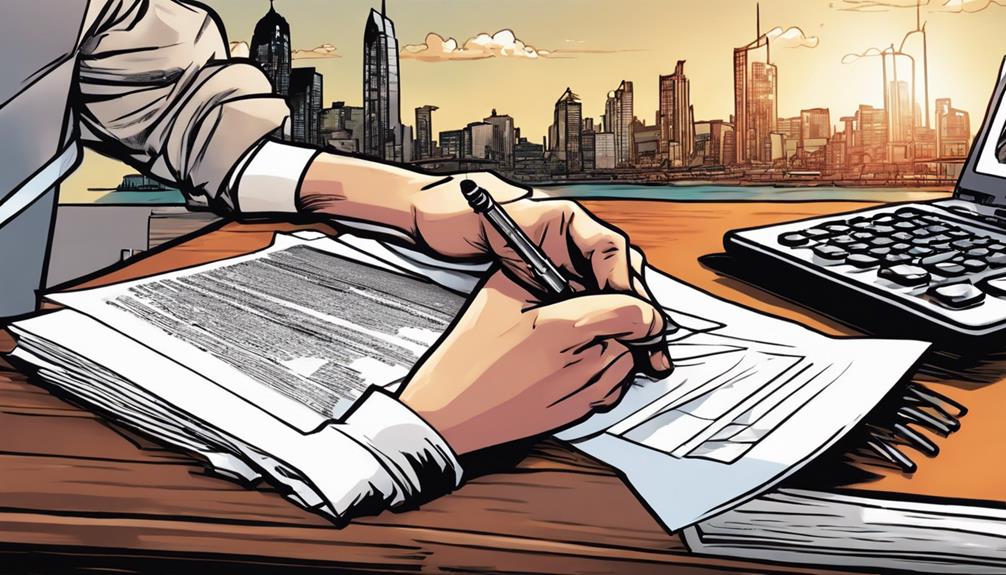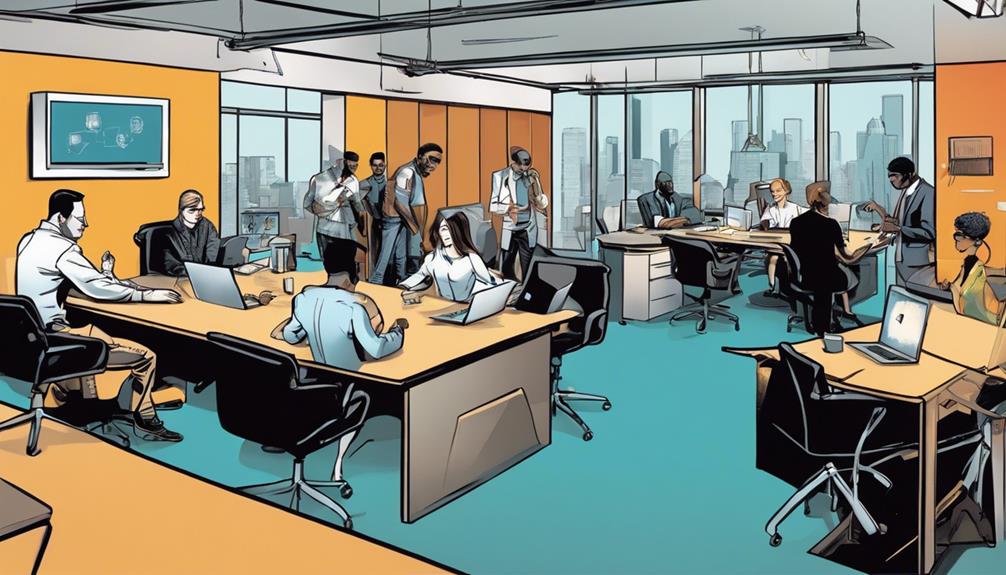Mastering the commercial leasing journey is crucial for the success of your business. To begin, it’s important to understand the different lease types and their terms. Take the time to assess your budget and determine your space requirements. Utilize commercial brokers and online resources to locate the perfect property. When it comes to negotiating, focus on key lease terms and seek guidance from legal experts to ensure clarity. Once your lease is finalized, make sure to conduct thorough due diligence to prevent any potential issues in the future. Be sure to proactively manage your post-lease responsibilities. With the right approach, you can navigate the leasing process smoothly and position your business for growth. There is always more to learn to improve your leasing strategies.
Key Takeaways
- Assess your budget and space requirements to ensure a suitable match for your business needs before beginning the leasing process.
- Utilize commercial real estate brokers and online platforms to find and compare potential properties effectively.
- Prepare a Letter of Intent outlining your proposed lease terms to facilitate clear negotiations with landlords.
- Conduct thorough due diligence, including property inspections and zoning checks, to avoid future complications.
Understanding Commercial Leasing

Understanding commercial leasing is vital for your business's success, as it lays the foundation for your operational space and financial obligations.
A commercial lease is a legal agreement between you and a landlord, allowing you to occupy a property for business purposes. The type of property—whether retail, office, or industrial—affects your lease terms.
Common lease conditions include rent duration, maintenance responsibilities, and renewal options. Unlike residential leases, commercial leases offer less legal protection for tenants but provide greater flexibility.
Familiarizing yourself with gross and net leases, as well as percentage leases, is important, as these determine your overall financial commitment. Knowing these fundamentals helps you navigate the leasing process effectively and make informed decisions.
Preparing for Your Lease

Before you immerse yourself in the leasing process, it's important to assess your business needs and space requirements to guarantee you find the right fit. Here's how to prepare effectively:
- Evaluate your budget: Determine how much you can afford for rent and associated costs.
- Identify space needs: Consider the size, layout, and amenities that suit your operations.
- Research locations: Investigate potential areas that align with your target demographics and customer access.
- Create a comparison spreadsheet: List potential properties side-by-side to analyze costs and features.
Finding the Ideal Property

Finding the ideal property involves leveraging various resources and strategies to guarantee you secure a location that meets your business needs. Start by utilizing commercial real estate brokers and online platforms to browse listings. Networking within your industry can also lead to valuable leads. When you've narrowed down options, visit potential properties for thorough evaluations.
Here's a simple comparison table to help you assess various properties:
| Property Name | Location | Square Footage |
|---|---|---|
| Property A | Downtown | 2,500 |
| Property B | Suburb | 3,000 |
| Property C | Industrial Park | 4,500 |
| Property D | Business District | 3,200 |
Negotiating Lease Agreements

Negotiating lease agreements requires a strategic approach to confirm you secure favorable terms that align with your business objectives.
To effectively negotiate, keep these key points in mind:
- Understand market rates – Research comparable properties to know what's fair.
- Prioritize lease terms – Identify which terms are most essential for your business, like rent and duration.
- Prepare a Letter of Intent (LOI) – Clearly outline your proposed terms to set the stage for negotiations.
- Consult legal counsel – Verify your agreements are clear and legally sound.
Finalizing Your Lease

Finalizing your lease involves carefully reviewing the agreement to guarantee all negotiated terms are accurately reflected and understood. Pay close attention to key elements such as rent, duration, and maintenance responsibilities. A final inspection of the property is essential before you sign, ensuring it meets your expectations.
| Key Considerations | Questions to Ask | Action Items |
|---|---|---|
| Rent Amount | Is it in line with market rates? | Compare with similar properties |
| Lease Duration | Does it align with your business plan? | Assess flexibility for renewal |
| Maintenance Duties | Who's responsible for repairs? | Clarify obligations in writing |
| Additional Fees | Are there any hidden costs? | Request a breakdown of fees |
Once everything checks out, you can confidently execute the lease.
Conducting Due Diligence

Conducting due diligence guarantees you thoroughly assess the property and its legal standing before signing the lease. This process is essential to avoid future headaches and make certain you're making a sound investment.
Here are four key steps to follow:
- Inspect the Property: Conduct a thorough inspection to identify any potential issues or repairs needed.
- Check Zoning Laws: Verify that the property complies with local zoning regulations for your intended use.
- Review Ownership: Confirm the landlord's ownership and authority to lease the property.
- Understand Market Conditions: Analyze local market trends to gauge if the rent aligns with similar properties.
Executing Your Lease

After completing due diligence, you're ready to execute the lease agreement, marking the official start of your rental commitment.
Make sure you thoroughly review the final lease document one final time; it should reflect all negotiated terms.
Once satisfied, gather all necessary documentation and schedule a signing meeting with the landlord.
Be mindful of the timing for any free rent periods, as they can greatly impact your costs.
Each party should sign the lease, and it's essential to keep copies for your records.
Finally, prepare to document any additional agreements or conditions discussed during the signing.
This step solidifies your commitment and sets the stage for your new commercial space.
Managing Post-Lease Responsibilities

Once you've signed the lease, it's crucial to establish clear communication with your landlord to understand maintenance responsibilities and schedules. This proactive approach helps prevent misunderstandings and guarantees your space remains functional.
Here are key post-lease responsibilities you should manage:
- Understand Maintenance Duties: Clarify what repairs you're responsible for versus the landlord.
- Compliance: Confirm you adhere to all lease terms and local regulations.
- Tenant Relations: Foster positive relationships with neighboring tenants and address any concerns promptly.
- Plan for Renewals: Keep track of lease timelines and start discussions about renewals or terminations early.
Frequently Asked Questions
What Are Common Pitfalls to Avoid in Commercial Leasing?
When leasing commercially, avoid rushing decisions, overlooking fine print, neglecting due diligence, or ignoring market trends. Don't underestimate the importance of legal counsel and always clarify responsibilities to prevent disputes and costly mistakes down the road.
How Can I Improve My Negotiating Position as a Tenant?
Like a chess player plotting the next move, you can improve your negotiating position by researching market rates, understanding your needs, and preparing compelling arguments. Don't hesitate to seek professional advice for better outcomes.
What Happens if I Need to Break My Lease Early?
If you need to break your lease early, review the lease terms for penalties. Communicate with your landlord, explore subleasing options, and consider negotiating a mutual termination agreement to minimize financial repercussions.
Are There Tax Benefits Associated With Commercial Leasing?
Yes, you can benefit from tax deductions related to commercial leasing. Rent payments are generally deductible as business expenses, and you might also deduct certain costs like property improvements, helping reduce your overall taxable income.
How Can I Ensure My Lease Is Portable for Future Tenants?
To guarantee your lease is portable for future tenants, negotiate clear transfer terms, maintain flexibility in tenant criteria, and consider lease structures that allow for easy assignment or subletting without excessive penalties or restrictions.
How can commercial leasing be a pathway to real estate investment opportunities?
Commercial leasing can serve as a stepping stone to real estate investment opportunities. By renting out a commercial property, investors can generate income and gain valuable experience in the real estate market. As they become more familiar with the industry, they can identify and pursue lucrative real estate investment opportunities.
How Can the Tips for Mastering Commercial Leasing Apply to Starting a New Business?
When starting a new business, the best startup owner manuals entrepreneur should consider the tips for mastering commercial leasing. Understanding lease terms, negotiating the best deal, and ensuring the space meets the business’s needs are crucial for success. Applying these tips can help new businesses thrive in their chosen locations.
Conclusion
As you navigate the commercial leasing journey, remember the adage, 'A stitch in time saves nine.'
Taking the time to understand your needs, research properties, and negotiate terms can save you from future headaches.
By mastering each phase—from preparation to execution—you'll secure a lease that not only meets your current needs but also supports your business's growth.
Embrace this opportunity, and you'll be well on your way to building a successful future for your venture.









